Audiences have returned to the Planet of the Apes (spoiler: it’s Earth) many times over the years, most recently with Kingdom of the Planet of the Apes. It’s time we rank every Planet of the Apes movie released so far in this sprawling, funny, weird, and socially-charged franchise.
The Planet of the Apes did not start as a franchise, but after the surprise massive success of the original film released in 1968, 20th Century Fox couldn’t wait to expand. After the release of the fifth film, Battle for the Planet of the Apes, in 1973 and its middling box office, the franchise remained dormant for decades until an attempted reboot in 2001 saw Tim Burton and Mark Wahlberg (still known to many as Marky Mark) reboot the original film. While the movie was a box office success, a sequel never materialized.
That led to another, shorter break for the franchise, which once again started over in 2011, with the current storyline that leads into the upcoming Kingdom of the Planet of the Apes. Starting from scratch with Rise of the Planet of the Apes and relying heavily on Ander Serkis’ stunning motion-capture performances and eventually Matt Reeves’ direction and writing, this new set of films successfully brought the series back, updated with better special effects and a whole new story.
That gives us three separate collections of Planet of the Apes films, but where do they all sit when considered together in quality? Here’s every Planet of the Apes movie, ranked from worst to best.
10. Beneath the Planet of the Apes
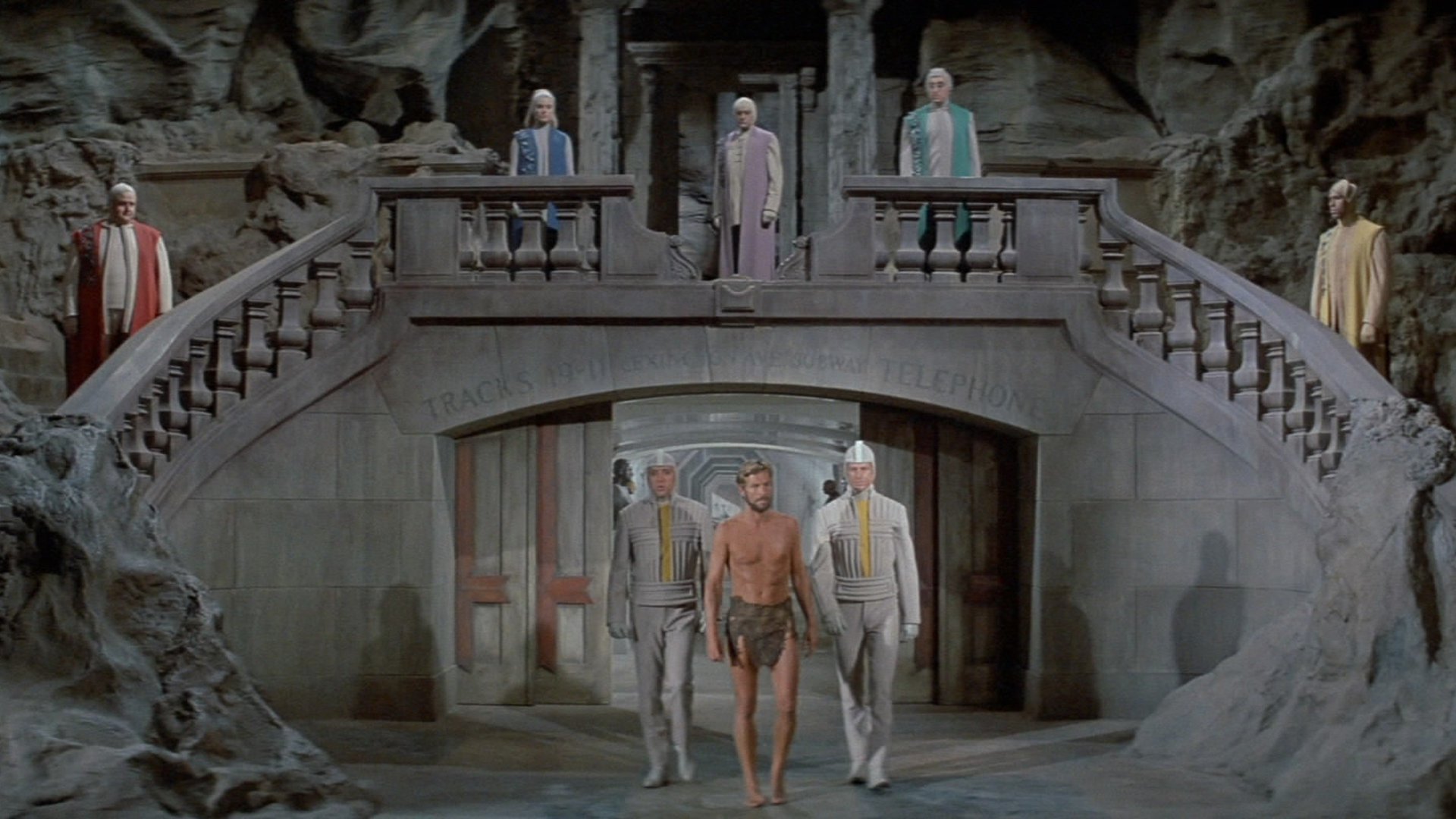
A sequel to the original Planet of the Apes was never planned, and boy does it show. From a lower budget to Charlton Heston only agreeing to return for what amounts to an extended cameo to the studio insisting the film had a twist ending like the original, Beneath the Planet of the Apes is a trainwreck from start to finish.
Focusing on the only survivor of a surprise second crew that also crash-landed on the Planet of the Apes (played by James Franciscus), the movie is a complete mess of storyline involving the now-telepathic human survivors on Earth living below the ground and worshipping a doomsday device while the apes attempt to wage war on them. The film’s “shocking” ending of the world being destroyed can’t come fast enough as watching this movie makes you seriously consider if that’s the right idea.
9. Battle for the Planet of the Apes
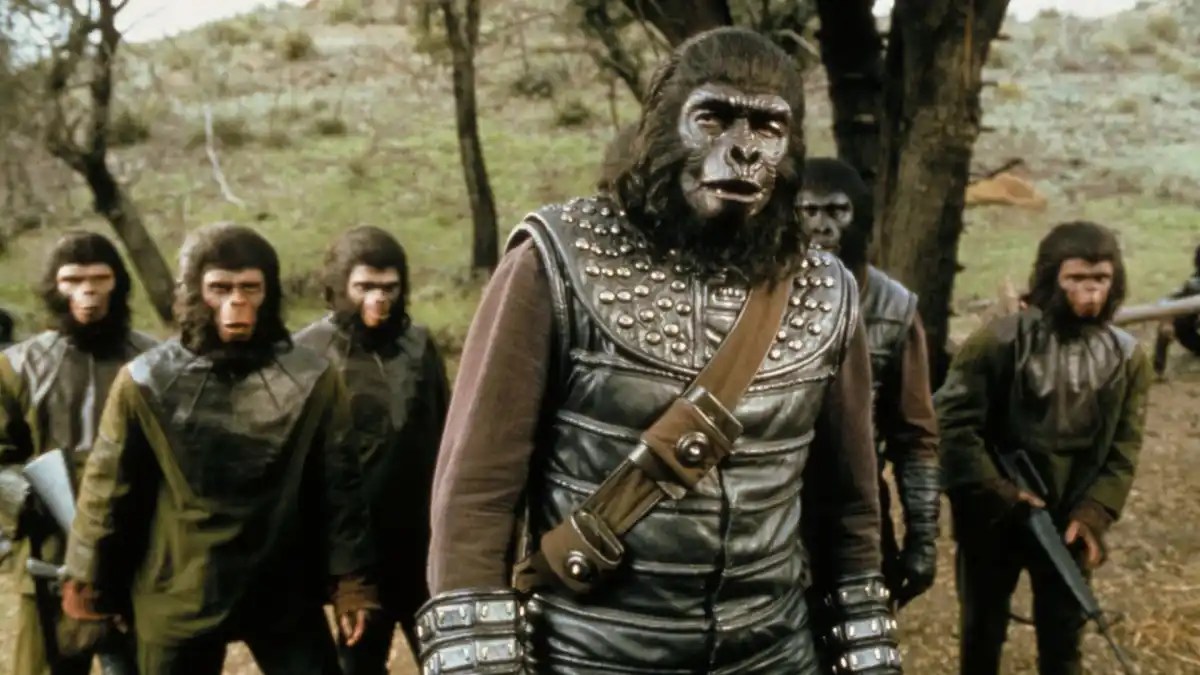
Battle for the Planet of the Apes, the final film in the original series run, is a movie crushed by the limitations forced upon it. Despite their generally positive box office returns (or maybe because of them), the Planet of the Apes films never had big budgets, being treated more like B-grade science-fiction than major blockbusters. Battle is the film most ruined by this as director J. Lee Thompson attempts to show the final fight for the planet between man and ape but can only pull together what looks like a student film where he got his friends together to film a war scene.
The rest of the movie fumbles its attempts at social commentary with a convoluted storyline about apes killing apes, which is far better handled in Dawn of the Planet of the Apes. While Roddy McDowall, who starred in all but one of the original films as apes Cornelius and his son Ceasar, turns in another performance that far outweighs the quality of the film he’s in, it’s not enough to save what, in the end, is a clunker of a movie.
8. Planet of the Apes (2001)
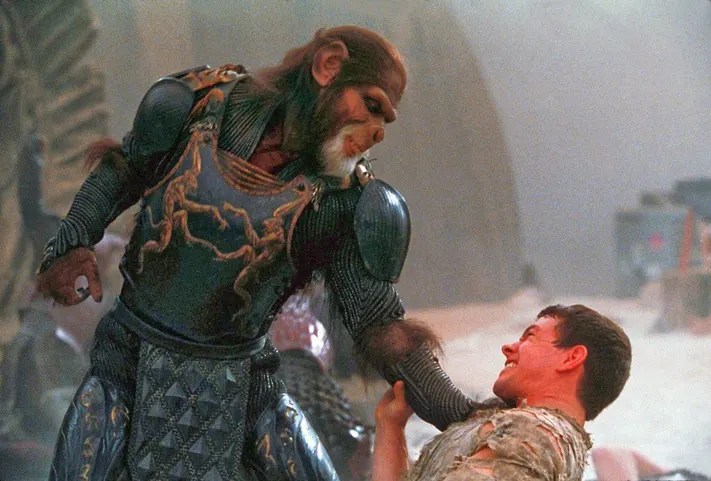
Tim Burton’s Planet of the Apes is so ’90s/’00s it is almost painful to watch at moments. While the film itself is visually and technologically superior to anything from the original run of films, it is a mess of a movie in almost every other aspect outside of its action. While most of the Planet of the Apes films are not too subtle in their social commentary, this film almost has a disdain for its perceived need to work it into its science-fiction trappings, providing nothing but clumsy exposition and ham-fisted commentary on the franchise’s usual social themes.
There’s also the horribly awkward romantic relationship between Wahlberg’s human character and Helena Bonham Carter’s ape one, turning the powerful female scientist role from the original film into a smitten trope whose motivations are almost insulting. The movie may coast by on production value alone, but its painful attempts at multiple twist endings and its clunker of a screenplay leave it at the lower end of this ranking.
7. Conquest of the Planet of the Apes
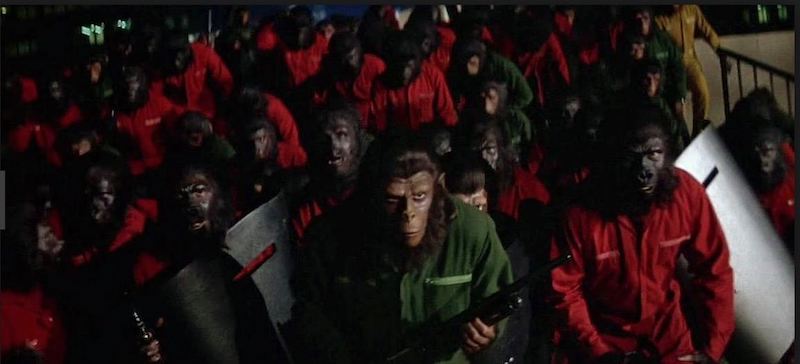
Conquest of the Planet of the Apes attempts to explain how humanity went from having just one smart ape on the entire Earth thanks to the time-traveling antics seen in Escape From the Planet of the Apes to society crumbling and Apes beginning their takeover. It does a woefully poor job with a story about all the dogs and cats in the world dying, so humans start keeping apes as pets, which eventually leads to ape slaves.
Outside of its non-sensical setup, the movie does actually handle its social commentary on inequality and ape uprising surprisingly well, even if it’s very heavy-handed. Much of this is thanks to McDowall’s striking performance as Caesar (the actor does not get enough credit for his performances in these films), especially in a powerful monologue at the end of the film delivered with such belief that it feels almost out of place with the rest of the film. Half camp, half actual science fiction, the movie works better and better as it rolls along to its inevitable conclusion.
6. Rise of the Planet of the Apes
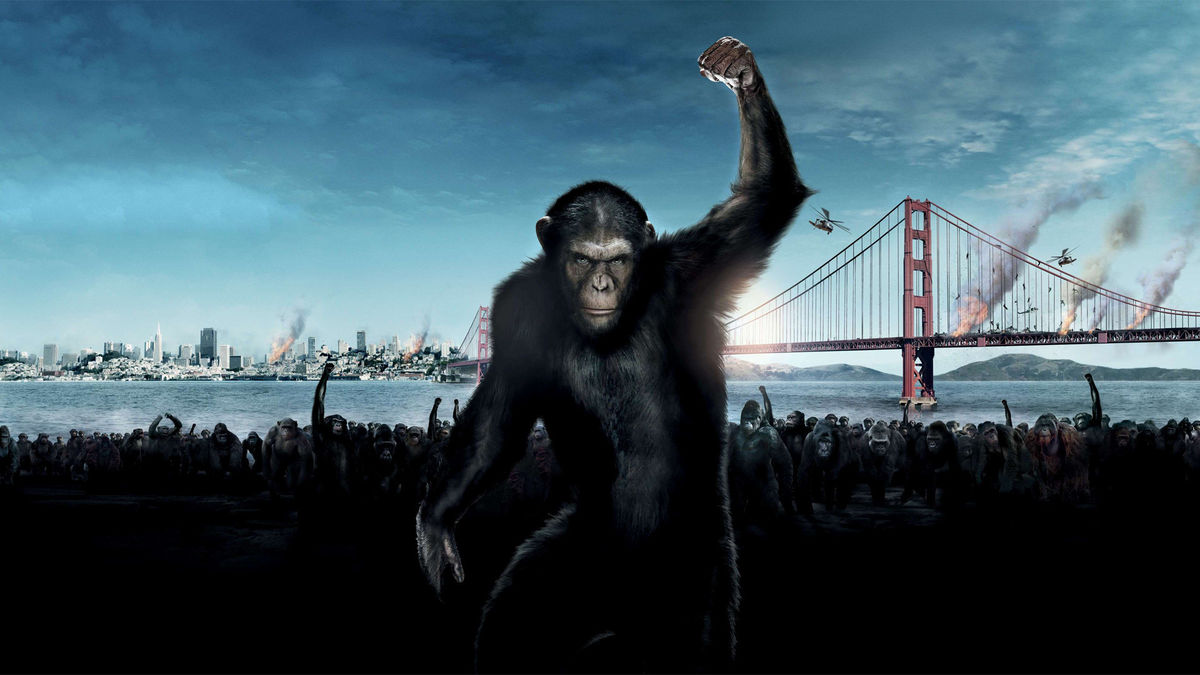
Rise of the Planet of the Apes is probably a better movie on the whole than any of the original series, thanks to technological advancements made in the decades since the original’s release, Serkis’ stunning mo-cap performance, and a general commitment to treating the premise seriously. But its biggest sin is not being a movie in and of itself. Rise is painfully just a setup for the start of a new franchise. While the movie does tell the somewhat complete story of Caesar, the first smart ape, and his rise to leading his ape brethren to freedom, it does so in such a way that it all feels like it isn’t telling its own story.
That, of course, is entirely what the film was meant to do, and in the context of the new trilogy of films, it’s a fantastic first part, but as a stand-alone movie, it isn’t enough. The film’s plot also has a few too many contrivances to really be something special, and director Rupert Wyatt turns in a work that is more of a traditional franchise film compared to the game-changing direction Reeves does in the rest of the trilogy.
5. Kingdom of the Planet of the Apes

What’s most impressive about Kingdom of the Planet of the Apes is that it doesn’t fall into the trap of many of the original sequels of feeling like a cash-in made to continue the franchise onward. Wes Ball’s film is a soft relaunch of the modern films that could have turned into a pale replica of the Rise/War/Dawn trilogy but instead finds its own story by jumping ahead in time generations all while maintaining the strong through-line of social and societal themes.
It’s a bit more formulaic than the other modern Ape films but the formula works well and Ball delivers the action when it truly matters. Throw in some truly convincing plot twists and powerful, darker moments that rival even the depressing endings of both Escape and the original film and you have a movie that looks set to kick off a fantastic new (reported) trilogy of Planet of the Apes movies.
Related: Matt Reeves’ Arkham TV Show Is Set in James Gunn’s DC Universe
4. Escape From the Planet of the Apes
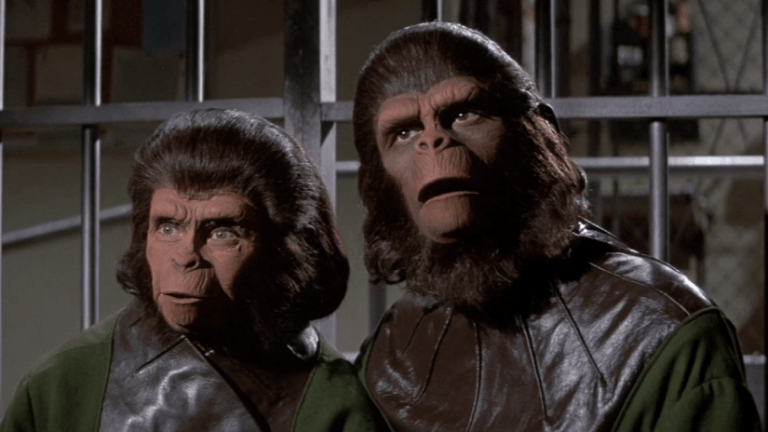
Nothing about Escape From the Planet of the Apes makes you think it should work. 20th Century Fox, having written itself into a dead end thanks to blowing up the Earth in Beneath, decided to tell an origin story of sorts by sending the original film’s two lead apes, Zira (Kim Hunter) and Cornelius (Roddy McDowall), back in time to present-day Earth.
It is a plot written around casting, not logic, inserts even more humor into the story, features a man in a horrible gorilla costume, and involves multiple government panels just talking. However, it works incredibly well. Giving only a cursory explanation of how the apes managed to travel back in time, the film instead shifts its focus to what science fiction and the first film do best: recontextualizing social and political issues to comment on them. Eschewing Beneath‘s attempts to go bigger with more action, Escape refocuses the franchise on its characters, telling a story that’s more political drama and character piece than a major action movie. It pays off in spades, being one of the few films in the original series that works with the period’s budget and technology, nailing a harrowing and depressing conclusion almost as well as the first film did.
3. Planet of the Apes (1968)
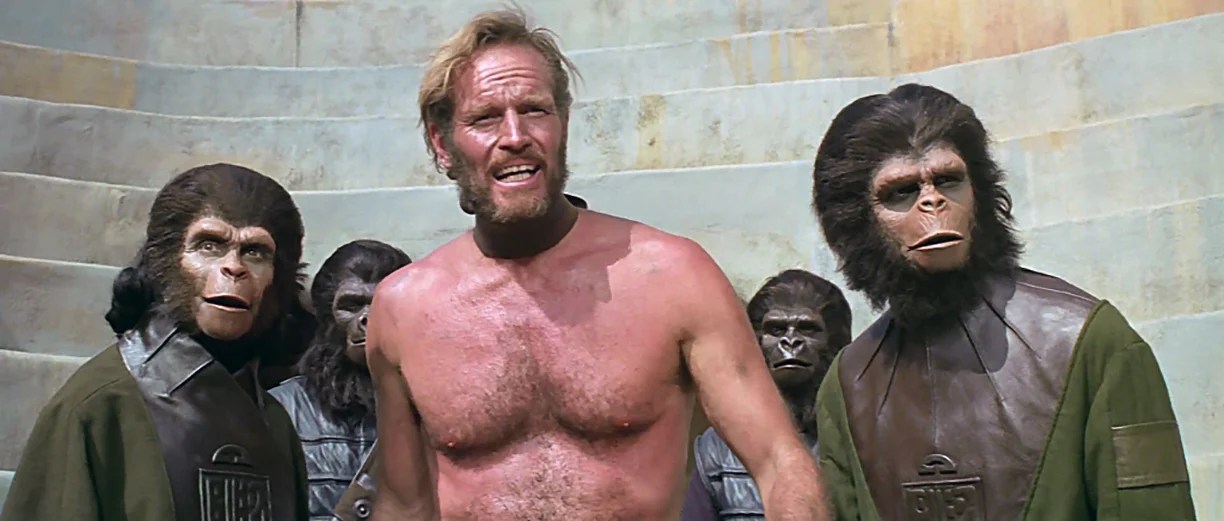
The original film, based somewhat on the book of the same name, is a classic for a reason, and it’s not just because of its then-shocking twist ending, which gave us one of the most iconic scenes and lines in all of cinema. It’s also not just because of its groundbreaking work in makeup and special effects. No, the reason the film truly works is that it takes its science fiction seriously. Heston is at his snarling best, playing hard into his American Western persona only to have the entire concept deconstructed by the film as the movie picks apart Cold War fears and the burgeoning debate over evolution and humanity’s place in the universe.
Part spectacle, part commentary, Planet of the Apes is a film that delivers even today despite some of its aspects (the score) not having aged all that well.
2. War for the Planet of the Apes
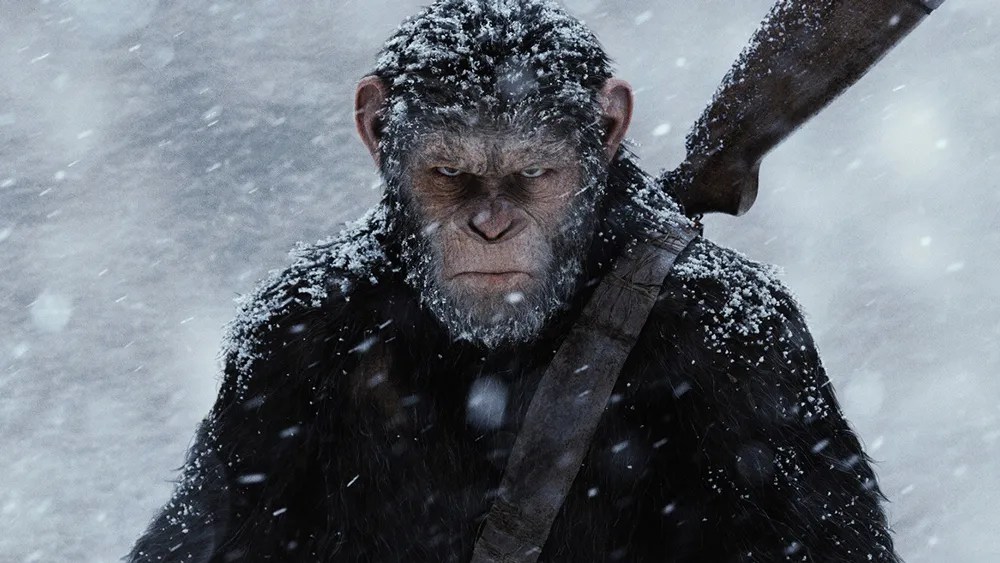
One could make an argument for War for the Planet of the Apes being in the number one spot as it takes some big swings over its predecessor, Dawn of the Planet of the Apes, that truly pay off. Anchored by what might be Serkis’ best performance in the trilogy and mo-cap effects that still outshine most films released today, War delivers a prolific film that concludes the Serkis-led trilogy and cements Reeves not just as one of the best genre directors working but one of the best directors working period.
Crammed full of both high-quality action and subtle, powerful performances, the movie is a triumph on the whole, only lacking when it starts feeling a bit too formulaic with its comic relief and plot points. It also features an underrated plot twist that aligns with the original film’s conclusion: the war the title refers to, which leads to the end of humanity, is not one between apes and humans but between humanity itself.
1. Dawn of the Planet of the Apes
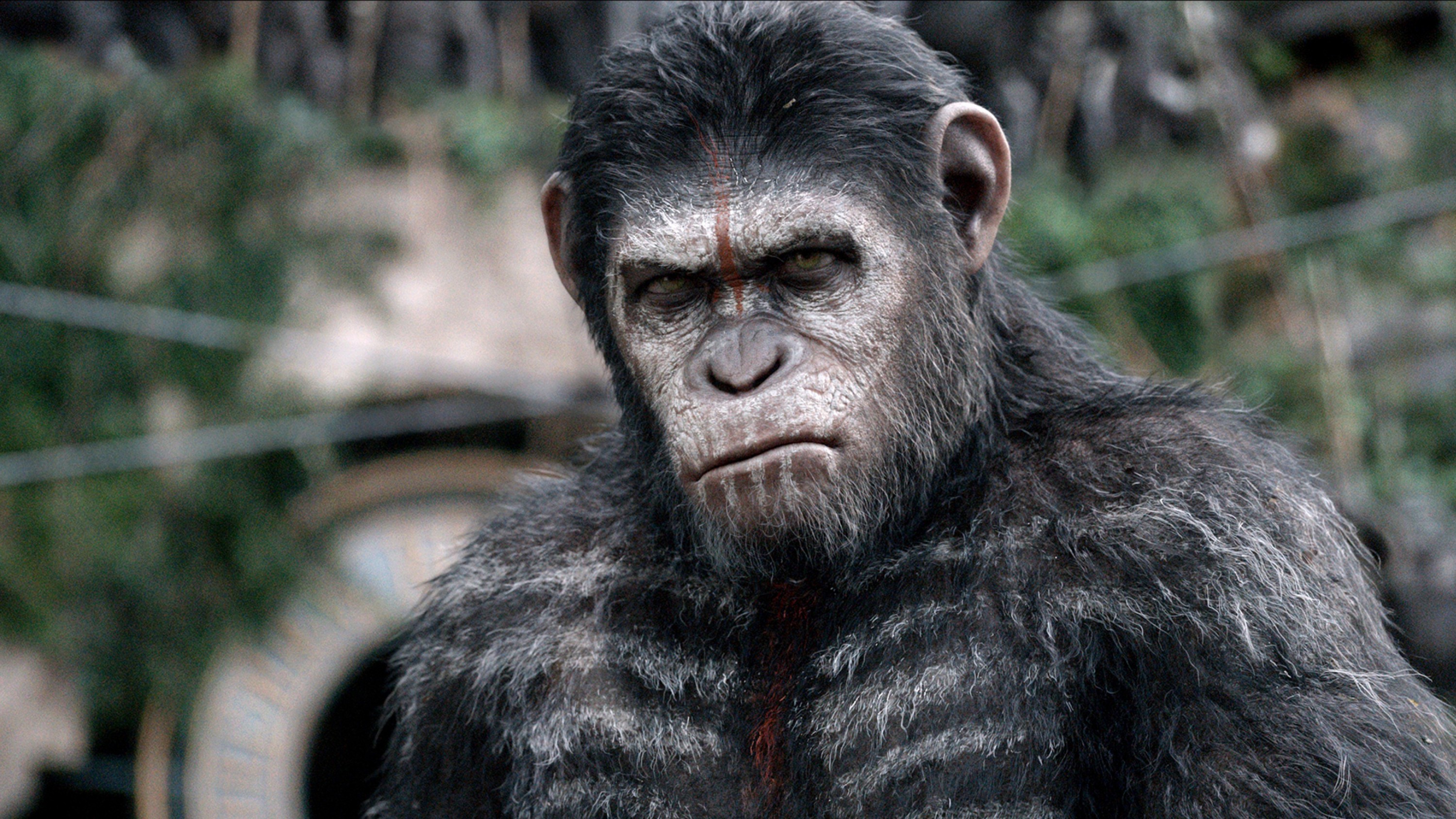
Dawn of the Planet of the Apes isn’t just the best of the Planet of the Apes films – it is some of the best science fiction to ever be released.
Capitalizing on Serkis’ Oscar-worthy performance as Caesar, the film is a slow-burn exploration of the themes of the entire franchise throughout the years, cherry-picking the best plot points from nearly every film and absolutely nailing all of them. From General Koba’s inevitable betrayal to the rise of Caesar as a kind of Moses figure to the apes, everything in this film works. Reeves’ direction focuses on the story, not the gimmick, and the gradual deterioration between the relationship of humanity and the apes is told so incredibly well that the dark conclusion of the film that we all knew would come is still an incredible moment. Packed with an even more powerful punch thanks to the pandemic and its themes still being relevant even ten years after its release, Dawn stands as the best film in this franchise.
And those are all of the Planet of the Apes movies, ranked from worst to best. If you’re looking to binge them all or just want to make your own ranking, you can find out the proper viewing order here.
Update: This article was updated on 5/10/24 by the original writer to include Kingdom of the Planet of the Apes.

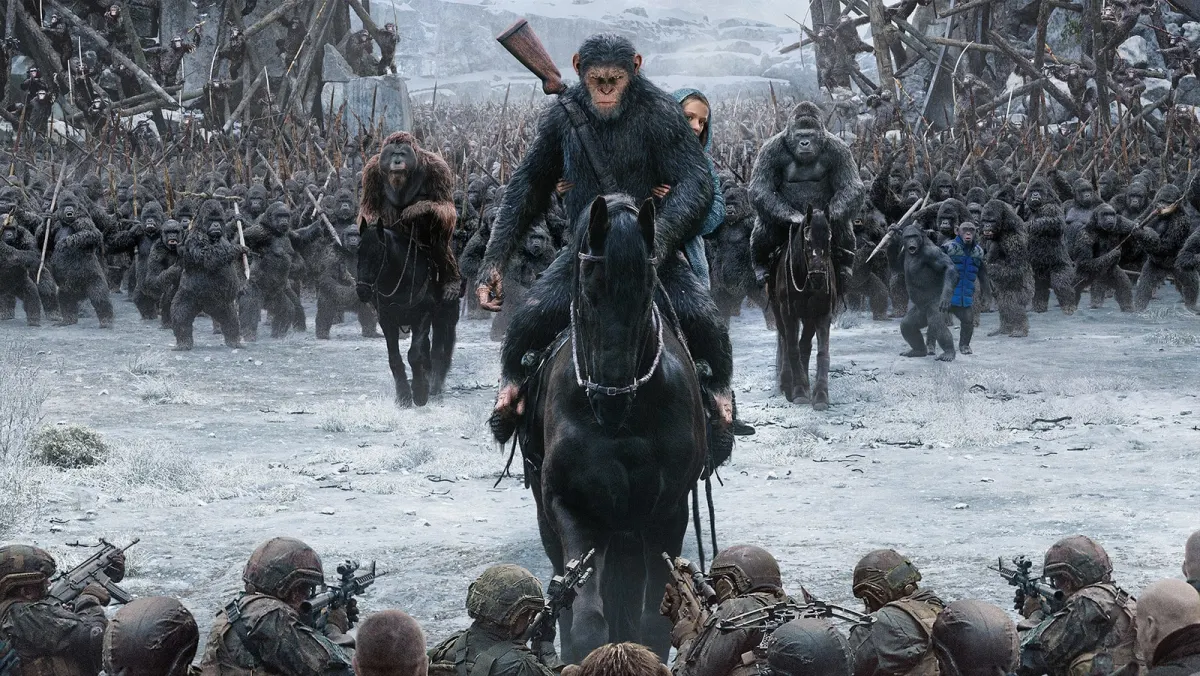




Published: May 10, 2024 04:13 pm